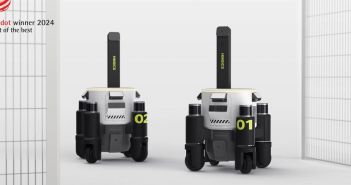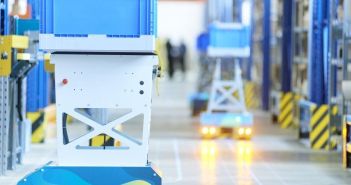Elias Wolfrath, a young researcher from CAE, was recently awarded for his work on “Energy-Efficient Indoor Climate Control with Plants” at the Young Energy Efficiency Researchers Conference. This research highlights the potential of using plant-based methods to raise indoor humidity levels in an energy-efficient manner, which is particularly relevant during the dry winter months. Additionally, the transpiration of plants also provides a natural cooling effect, thereby reducing the energy demand for air conditioning systems in the summer.
Plants for Energy-Efficient Indoor Humidity Control: Research Findings
The research conducted by Wolfrath demonstrates that indoor humidity can be efficiently increased through plant transpiration. This finding is particularly relevant during winter months when indoor air tends to become dry. Furthermore, the transpiration process of plants also provides a cooling effect, which can help reduce the energy demand for air conditioning systems during summer. The project, Green4Indoor, which supported this study, was funded by the German Federal Environmental Foundation.
Machine-Learning Approach for Predicting Thermal Comfort Wins Award
Christian Weiglein (CAE) was recognized for his contribution titled “Innovative approaches to thermal comfort and automated lighting” at the conference. His work presented a machine-learning approach to predict thermal comfort. By correlating user surveys with telemetry data from the existing building automation system at the CAE’s Energy Efficiency Center, significantly better results were achieved compared to conventional thermal indices. The project, KICk-StARtER-G, which supported this research, is currently funded by the Federal Ministry of Education and Research. The CAE collaborated with OmegaLambdaTec GmbH and Mozys Engineering GmbH on this project.
The awards received by the CAE young researchers at the World Sustainable Energy Days demonstrate the successful integration of innovation and sustainability. The research on plant-based indoor climate control and the use of machine learning technologies for optimal thermal comfort offer significant benefits in terms of energy efficiency and sustainability. These studies contribute to addressing the challenges of climate change and shaping a more sustainable future. The CAE’s support for projects like Green4Indoor and KICk-StARtER-G showcases their commitment to innovative solutions in the field of energy efficiency and sustainability.














